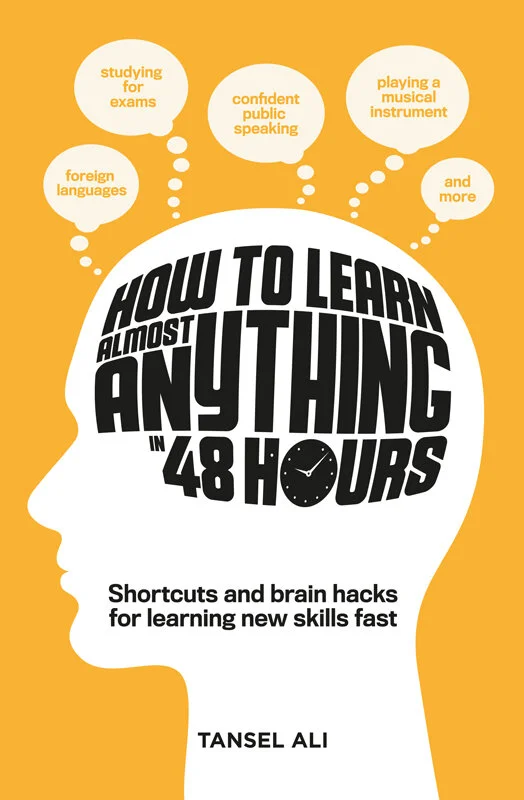The Strange Power of Humour and Imagination in Memory
Why Ridiculous Things Stick
Ever notice how you can quote a silly TV commercial jingle from childhood, yet you blank on the names of people you met last week?
That’s not poor memory. That’s how the brain works.
Our minds are drawn to the unusual, things that break the pattern, shock us, make us laugh, or simply don’t make sense. And when you combine humour, imagination, and exaggeration, you create memories so sticky they’re almost impossible to forget.
In my early days of memory training, I didn’t get this. I kept my images serious, almost too logical. An image was just a plain image. And when the pressure of a competition hit, those flat images disappeared.
But once I let myself go ridiculous, turning those same images into crazy cartoons, my memory transformed. Suddenly, I wasn’t just recalling. I was entertained. And that’s what gave me the consistency to win four championships.
Here’s the good news: you don’t need to be a comedian or an artist to do this. You just need to let your brain play.
Why Humour Works in Memory
Humour makes things stand out.
Think of the last serious work meeting you sat through. Chances are you forgot most of it. But if someone cracked a funny line, that’s the one thing you remembered.
It’s the same in memory.
Boring: To remember “milk,” you picture a carton.
Funny: You imagine a cow moonwalking across the kitchen, spraying milk everywhere.
Which one are you more likely to recall tomorrow?
The Science of Humour
Humour is essentially surprise. The punchline flips your expectation. That surprise sparks emotion, and emotion is the glue of memory.
There’s also brain chemistry at play. Humour triggers dopamine, the feel-good chemical. Dopamine doesn’t just lift your mood, it strengthens learning. That’s why you can laugh and remember at the same time.
Practical Drill: The Funny Flip
Write down a boring object, e.g., “pen.”
Flip it into something funny, the pen tells dad jokes, or starts beatboxing.
Recall it later. You’ll see how much more vivid it feels.
The Role of Imagination
Imagination is the multiplier of memory.
A chicken in reality is just a chicken. In your imagination, it can:
Grow to ten feet tall.
Breathe fire.
Wear sunglasses.
Teach a yoga class.
That’s impossible in reality. Which is exactly why it’s unforgettable.
Imagination = Creativity
Imagination doesn’t just boost recall, it boosts creativity.
When you practise bending reality, you’re training the same brain muscles you use to solve problems, come up with new ideas, or think outside the box. That’s why memory training is never just about memory. It’s about creative thinking too.
Story: My Imagination Breakthrough
In one competition, I had to memorise random words. Early on, I used flat images. For “chair,” I imagined… well, a chair. Not surprisingly, I blanked.
The next round, I let myself go wild. For “chair,” I pictured a chair sprouting rocket boosters and blasting off into the sky, smoke everywhere, the crowd cheering.
Guess which one I recalled. That was when I realised imagination wasn’t optional, it was essential.
Drill: Imagination Stretch
Pick a word — let’s say “shoe.”
Step 1: Make it oversized — the size of a house.
Step 2: Change the colour — glowing neon pink.
Step 3: Bring it to life — the shoe starts rapping Eminem lyrics.
Step 4: Put yourself in it — you’re stuck inside, trying to escape.
That’s how you stretch imagination until it sticks.
Exaggeration: Turning the Volume Up
Exaggeration is the final ingredient. It’s about pushing things until they’re impossible to ignore.
Normal: You picture a tomato.
Exaggerated: You picture a tomato the size of a bus, rolling down the street, crushing cars, juice flooding the city.
Which one’s more likely to stick?
Why Exaggeration Works
The brain filters out the ordinary. If it didn’t, you’d be drowning in detail. Exaggeration forces your brain to stop and take notice.
Think of fishing stories. “It was a big fish”, forgettable.
“It was the biggest fish in the world, glowing in the dark, dragging our boat underwater”, unforgettable.
Drill: The Exaggeration Ladder
Pick an object, “cup.”
Normal: It sits on a table.
Step 1: Make it 10 times bigger.
Step 2: Now 100 times bigger, the size of a swimming pool.
Step 3: Add drama, it tips over, flooding the city.
Step 4: Add humour, the cup apologises in a squeaky voice as it spills.
That’s exaggeration in action.
Everyday Applications of Humour, Imagination, and Exaggeration
Remembering Names
Meet someone called “Bill.”
Flat: Picture a receipt.
Humour: Imagine bills raining from the sky, burying him.
Imagination: The bills come to life, dancing and singing.
Exaggeration: The pile grows so big it topples a skyscraper.
Now you’ll never forget Bill.
Learning Languages
Spanish word “gato” (cat).
Imagine a cat climbing a gate in a tuxedo suddenly tripping over a banana peel.
That’s not just “gato”, that’s an unforgettable scene.
Business Meetings
Need to recall a client’s detail, say, they run a bakery.
Imagine the client juggling croissants while laughing, croissants growing larger until they fill the meeting room.
Humour + exaggeration + imagination = you never forget they’re in the bakery business.
Passwords and PINs
Your PIN is 4921.
49: Picture a huge bottle of 49ers football players doing ballet.
21: They’re dancing on a giant blackjack table.
Add humour: The table complains it’s tired.
Add exaggeration: The players are 50 feet tall, wobbling as they spin.
Now your PIN isn’t abstract digits, it’s a funny, exaggerated story. This is a basic version of remembering numbers. If you want a more effective way, The Major System or even the Number Rhyme system are the techniques to look at.
FAQ: Common Questions
Q: What if I’m not creative?
A: Everyone is creative when it comes to memory. Start small. Exaggerate just one detail. It will grow naturally with practice.
Q: Can I overdo it and confuse myself?
A: No, because the more ridiculous it is, the clearer it becomes. Ordinary images blur together. Absurd ones stand out.
Q: Won’t this look silly in professional settings?
A: Nobody sees your images but you. Outwardly, you look composed. Inside, you’re remembering with the help of a breakdancing cow.
Q: Do I need to use all three (humour, imagination, exaggeration) at once?
A: Not at all. Even one is powerful. Together, they’re unstoppable.
Q: Does this work for serious material, like law or medicine?
A: Yes. In fact, the more serious the content, the more humour helps. It turns dry material into something your brain actually wants to remember.
My Own Competition Story
There was one event where I had to recall hundreds of random numbers. At first, I kept the images logical, neat, tidy, realistic. Under pressure, they vanished.
Then I let myself go ridiculous.
Now, instead of memorising dry numbers, I was watching an absurd cartoon in my head. That cartoon carried me through the round without a single mistake.
That’s when I knew: seriousness makes memory fragile. Humour and imagination make it bulletproof.
A 3-Day Humour & Imagination Challenge
Day 1: Pick 10 random words. For each one, make a funny, exaggerated image. Review after 10 minutes.
Day 2: Do the same, but link the words together into one absurd story. Review after 1 hour.
Day 3: Apply it to real life. Take a shopping list, names, or facts you need to learn, and exaggerate them until they’re laughable.
By the end of 3 days, you’ll see how much easier recall becomes when you let yourself go ridiculous.
Why This Matters Beyond Memory
This isn’t just about remembering lists.
For business leaders: You’ll deliver presentations that people remember.
For students: You’ll turn textbooks into movies in your head.
For anyone: You’ll stop forgetting names, details, and tasks.
When you use humour, imagination, and exaggeration, you stop fighting your memory. You start enjoying it.
Your Next Step
Next time you want to remember something, a name, a fact, a task — don’t make it flat.
Make it funny.
Make it imaginative.
Exaggerate it until it’s absurd.
That’s how you build memories that last.
And if you want to go deeper to apply these methods to your work, studies, or life, that’s exactly what I help people do in my coaching.
👉 Explore memory coaching with me by clicking here.



